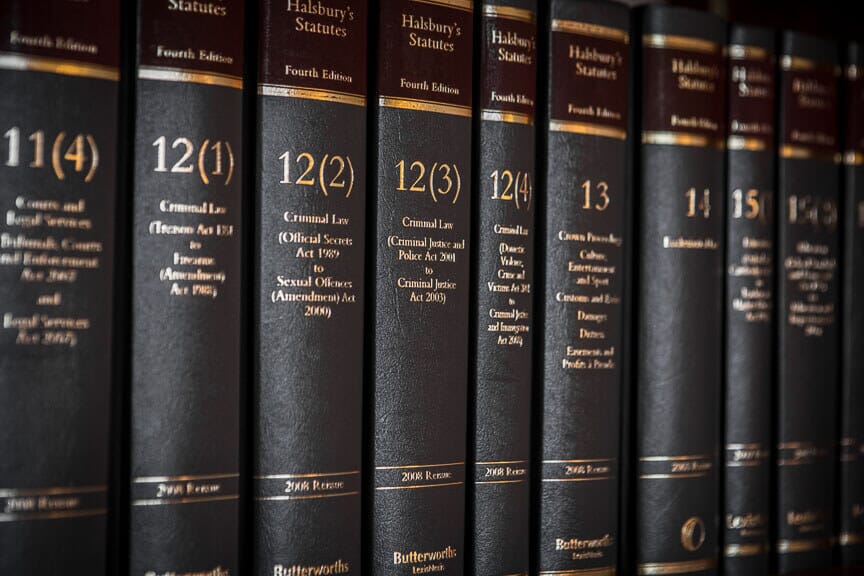
The Government Consultation into unclaimed damages decided that they should be given to charity. During the legislative purpose it was suggested that giving all unclaimed damages to charity would be unjust. Therefore what became s 47C(6) of the Competition Act was added to the bill. This provides:
(5) Subject to subsection (6), where the Tribunal makes an award of damages in opt-out collective proceedings, any damages not claimed by the represented persons within a specified period must be paid to [charity].
(6) In a case within subsection (5) the Tribunal may order that all or part of any damages not claimed by the represented persons within a specified period is instead to be paid to the representative in respect of all or part of the costs or expenses incurred by the representative in connection with the proceedings.
Section 47C is reflected in the CAT’s procedural rules. CAT Rule 93(4) reads:
Where the Tribunal is notified that there are undistributed damages …, it may make an order directing that all or part of any undistributed damages is paid to the class representative in respect of all or part of any costs, fees or disbursements incurred by the class representative in connection with the collective proceedings.
There is an incorrect view that has gained traction in the market that provides that it is only from unclaimed damages that a claimant can recover its costs. This view is severely undermining the regime, particularly where there is a good prospect that substantial damages can be distributed to the class. The perverse result is that cases with good damages distribution that should be encouraged because they provide effective access to justice, are the cases which are disincentivised because costs might not, on this incorrect view, be recovered.
The view is particularly confusing because neither the Government nor Parliament intended this outcome, and did not intend to limit costs recovery to post-distribution recovery. Ironically, a closer look at preparatory documents reveals that the Government was particularly interested in encouraging smaller opt-out actions where damages could be distributed.
A damages distribution rule, not a costs recovery rule
Government Consultation
Unclaimed damages were considered when the Government consulted on options to reform private damages actions (the ‘Consultation’). The Consultation referred to unclaimed damages and the distribution options, but not in the context of cost and fee recovery. The Government proposed a number of ‘options for distribution’: (i) cy-près, (ii) escheat to the Treasury, (iii) reversion to the defendants, (iv) distribution to the Access to Justice Foundation, and (v) claimant-sharing.
A majority of the respondents were in favour of distributing unclaimed sums to the Access to Justice Foundation and the Government adopted this approach. What is striking is that the question of funding collective actions was never posed. Funding claims out of unclaimed damages was never even posed as a possibility.
Parliamentary record
Schedule 8 of the Consumer Rights Bill (‘Private actions in competition law’) was the direct result of the Consultation. Accordingly, the first draft of the Bill proposed that undistributed funds be paid to charity – what became section 47C(6) was absent. By the time the second version of the Bill was placed before Parliament, section 47C(6) had been added and section 47C(5) had been amended in the form that ultimately became part of the CRA.
The Consultation and parliamentary record do not support the view that section 47C(6) limits costs recovery to post-distribution. If any change were intended, section 47C(6) created an additional route recover costs.
The debate in the House of Lords is helpful: the purpose of adding section 47C(6) was to create an opportunity for pro bono lawyers to recover costs as stated by Lord Phillips:
In Schedule 8 to this Bill, new Section 47C(6) allows the tribunal to order unclaimed damages to go towards the pro bono lawyer representing the collective claimants, for his or their costs.
Since pro bono lawyers act ‘for free’, they would not normally be able to recover their fees as they have not charged any. Baroness King of Bow echoes this:
As we have seen, [the Amendment] allows money not claimed in opt-out collective proceedings to be paid to charity, and permits any money remaining after that to go to pro bono lawyers. That is also the substance of several of the amendments tabled … which, as we have heard, would allow lawyers who have worked for free in successful cases on behalf of consumers to get paid.
Baroness Neville-Rolfe, responding on behalf of the Government, confirms that the purpose of section 47C(6) is to regulate costs recovery in pro bono representation:
[…] we are trying to ensure that unclaimed funds are allocated in the most appropriate way and that certain contingencies are provided for. […] redress for breaches of competition law […] may be costly. […] representative bodies which successfully represent consumers should have the opportunity of having some or all of their costs paid out of unclaimed damages so as to ensure that they bring actions on behalf of consumers. Therefore, the Bill grants the CAT discretion to award some or all of the unclaimed damages to the representative.
[…] the Government wish to encourage representatives – including, of course, those who act on a pro bono basis – and therefore the Bill provides that the CAT may sometimes award costs to a representative who acted on such a basis. The Government believe that if the opportunity for unclaimed damages to go to representatives who act on a pro bono basis is restricted, there could be negative consequences for the consumer.
The pro bono element is further confirmed by the amendments to the Enterprise Act 2002 which formed part of the same amendment as section 47C(6). Section 32 CRA amended the Enterprise Act’s section named “Pro Bono Representation.” The amendment provides,
Tribunal rules may make provision—
(ha) allowing the Tribunal to order payments in respect of the representation of a party to proceedings under section 47A or 47B of the 1998 Act, where the representation by a legal representative was provided free of charge;
This amendment to the Enterprise Act 2002 was section 32 of the original Bill that was placed before the Commons – the version that did not have section 47C(6) included. Thus, section 32 CRA instructed the CAT to make a rule permitting pro bono payments out of the unclaimed damages pot, but there was no statutory provision giving the Tribunal the power to order the payments, hence the addition of section 47C(6). CAT Rule 104(1) provides that an adverse costs award in respect of pro bono representation can be ordered.
Settlement
Further, those that argue that section 47C(6) is the only way that costs can be recovered are silent on why the same principle does not apply upon a settlement.
Section 47C(6) only applies upon judgment and is the only provision addressing costs recovery. In the event of a settlement there are no explicit provisions addressing costs recovery. By arguing that section 47C(6) provides the only avenue for costs recovery (i.e. the only right-creating provision), where a right is not explicitly set out there can be no costs recovery. Therefore, on that basis, costs must not be recoverable upon settlement. The CAT Rules do not support this proposition, and envisage costs recovery pre- and post-distribution to the class even in the absence of clear statutory power to pay costs at all.
As part of settlement approval the CAT assesses the payment of costs (CAT Rule 97). As these costs arrangements can be made pre-distribution, the CAT has the power to approve pre-distribution costs recovery. The Guide to Proceedings provides:
The Tribunal’s consideration of the amount and terms of the settlement will include the monetary and non-monetary benefits offered by the settling defendant, as well as any related provisions as to the payment of costs, fees and disbursements. In particular, the Tribunal may consider the amount allocated to costs, fees and disbursements as a proportion of the overall settlement. Where legal costs make up a significant proportion of the settlement funds, the Tribunal will scrutinise whether this allocation is appropriate and will be alert to any potential conflict of interest between the class (or settlement) representative and its lawyers on the one hand and the class members on the other hand.
If class representatives in settlement were constrained to post-settlement recovery of cost, the CAT would not take the allocation of settlement cost into account.
Conclusion
The Consultation and Hansard corroborate that section 47C(6) is designed to provide compensation to pro bono lawyers as per section 194 Legal Services Act 2007. It is an additional route to costs recovery in this situation and was not intended to generally regulate costs recovery.
Hansard in particular shows that the amendment to add section 47C(6) was predicated upon it being an additional route to costs recovery. As the Bill was otherwise silent on costs recovery, because it had not been consulted upon, the normal rules of costs recovery continue to apply.
